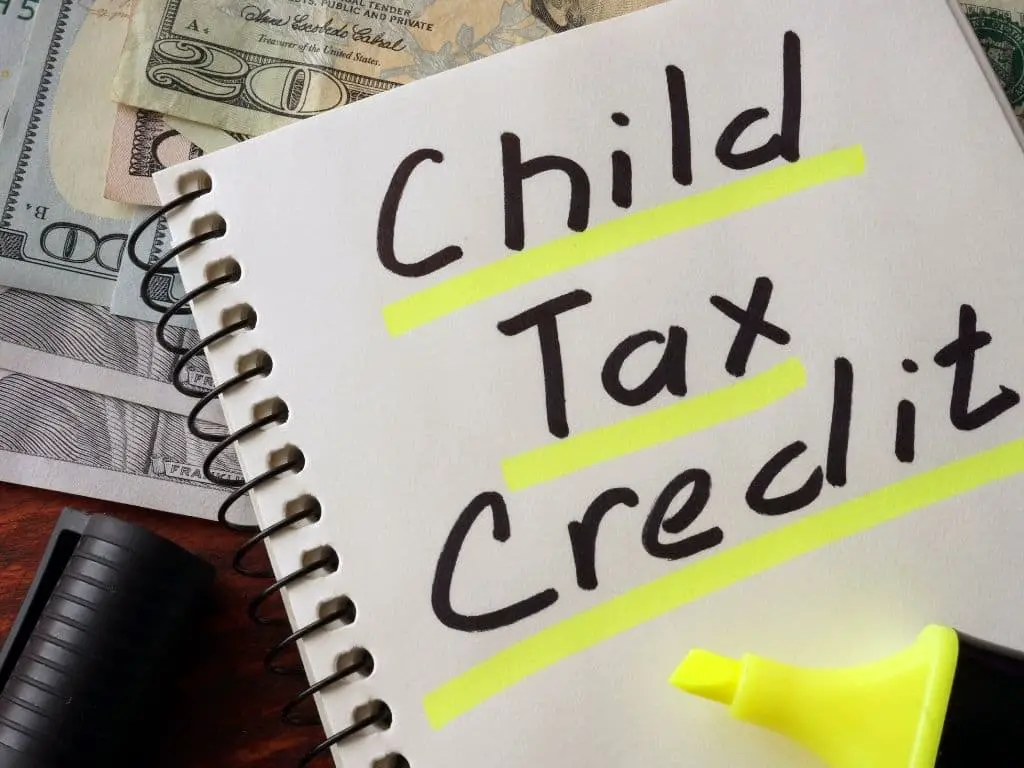Figuring out if the child tax credit is taxable can be confusing. The child tax credit can be a great way to save money on your taxes, but there’s a lot of confusion about whether or not it’s taxable.
Is child tax credit taxable? No, the child tax credit is not taxable. Child Tax Credit payments will not be recorded as income on a taxpayer’s tax return and will not be reported as such.

We’re here to help clear things up. In this article, we’ll explain what the child tax credit is, who qualifies for it, and whether or not it’s taxable.
Is Child Tax Credit Taxable?
These payments are not taxable income and will not be taxed. These are payments made ahead of time to help a person qualify for next year’s child tax credit.
However, the IRS’s estimate of a person’s Child Tax Credit is used to calculate their total amount of prior advance Child Tax Credit payments. The IRS mostly uses data from past tax returns to produce an estimate. If the overall sum is greater than the child tax credit amount, they would be able to claim it on their return if they qualify.
For example, if someone got advance Child Tax Credit payments for two qualifying children claimed on their 2020 tax return but no longer has any qualifying children in 2021, the advance payments they received will be added to their 2021 income taxes unless they qualify for repayment protection.
The advance Child Tax Credit allows qualifying families to get early payments of the tax credit that many people will qualify for on their tax returns during the next year’s filing season. These early payments will be disbursed monthly through December by the IRS. Here is some additional information to assist taxpayers in better comprehending these payments.
For the purpose of receiving an advance Child Tax Credit payment, who is a qualifying kid.
To understand it better let’s take the example of the tax year 2021
- For the tax year 2021, a qualifying child is someone who does not turn 18 before January 1, 2022, and meets the following criteria:
- The individual is a taxpayer’s child, stepchild, eligible foster kid, brother, sister, stepbrother, stepsister, half-brother, half-sister, or descendant such as a grandchild..
- The individual will not contribute more than one-half of his or her own support throughout 2021.
- For more than half of the tax year 2021, the individual is a dependent of the taxpayer. Though there are exceptions.
- The person is correctly classified as a dependent of the taxpayer. More information is available on Publication 501, Dependents, Standard Deduction, and Filing Information.
- For the tax year 2021, the individual does not file a joint return with his or her spouse and instead only claims a refund of withheld income tax or anticipated tax paid.
- The individual was a U.S. citizen, national, or resident alien.
Calculating Taxes On Child Tax Credit
The child tax credit is non-taxable.
How To File A Child Tax Credit On Your Federal Taxes?
You can file it using two options:
- You are submitting a tax return electronically through the use of tax return preparation software,
- or you are filing a paper return without the use of tax preparation software.
If you file your taxes using tax return preparation software:
- The program may request information regarding the advance Child Tax Credit payments you received (for example, the amount of those payments).
The software will utilize that data to reconcile your Child Tax Credit for you based on the information you provide regarding your advance payments, qualifying children, income, and other circumstances.
If you opt to submit a paper return without using tax return preparation software:
- For the reconciling process, use Schedule 8812 (Form 1040).
- To calculate, follow the instructions in Schedule 8812.:
- The unused portion of the Child Tax Credit you can legitimately claim on your 2021 tax return is $2,500.; or
- If you receive a refund, the IRS will subtract any excess advance Child Tax Credit payment amount.
Important: The most reliable, simplest approach to reconcile and claim the Child Tax Credit, as well as other credits like the Earned Income Tax Credit, Child, and Dependent Care Credit, among others, is through e-filing.
State Taxes On Child Tax Credit
The child tax credit is not included in income, hence not taxable.
Conclusion
The child tax credit is a payment that helps parents offset some of the costs associated with raising children. This credit is non-taxable, meaning it will not be recorded as income on a taxpayer’s tax return and will not be reported as such. Advance payments of a person’s child tax credit for the next year are what they refer to. If you have any questions about your child tax credit or would like more information, please consult a qualified accountant or visit the IRS website.